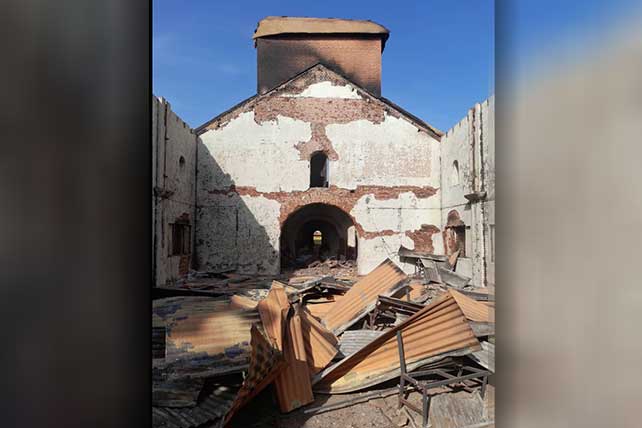The SAF’s Gen. Abdelfattah al-Burhan and his then-vice president, RSF leader Mohamed Hamdan Dagalo, were in power when civilian parties in March agreed on a framework to re-establish a democratic transition in April, but disagreements over military structure torpedoed final approval.
Burhan sought to place the RSF – a paramilitary outfit with roots in the Janjaweed militias that had helped former strongman Omar al-Bashir put down rebels – under the regular army’s control within two years, while Dagolo would accept integration within nothing fewer than 10 years. The conflict burst into military fighting on April 15.
Both military leaders have Islamist backgrounds while trying to portray themselves to the international community as pro-democracy advocates of religious freedom.
Following two years of advances in religious freedom in Sudan after the end of the Islamist dictatorship under Bashir in 2019, the specter of state-sponsored persecution returned with the military coup of Oct. 25, 2021.
After Bashir was ousted from 30 years of power in April 2019, the transitional civilian-military government had managed to undo some sharia (Islamic law) provisions. It outlawed the labeling of any religious group “infidels” and thus effectively rescinded apostasy laws that made leaving Islam punishable by death.
With the Oct. 25, 2021 coup, Christians in Sudan fear the return of the most repressive and harsh aspects of Islamic law. Abdalla Hamdok, who had led a transitional government as prime minister starting in September 2019, was detained under house arrest for nearly a month before he was released and reinstated in a tenuous power-sharing agreement in November 2021.
Hamdock had been faced with rooting out longstanding corruption and an Islamist “deep state” from Bashir’s regime – the same deep state that is suspected of rooting out the transitional government in the Oct. 25, 2021 coup.
Persecution of Christians by non-state actors continued before and after the coup.
In Open Doors’ 2023 World Watch List of the countries where it is most difficult to be a Christian, Sudan was ranked No. 10, up from No. 13 the previous year, as attacks by non-state actors continued and religious freedom reforms at the national level were not enacted locally.
Sudan had dropped out of the top 10 for the first time in six years when it first ranked No. 13 in the 2021 World Watch List.
The U.S. State Department’s International Religious Freedom Report states that conditions have improved somewhat with the decriminalization of apostasy and a halt to demolition of churches, but that conservative Islam still dominates society; Christians face discrimination, including problems in obtaining licenses for constructing church buildings.
The U.S. State Department in 2019 removed Sudan from the list of Countries of Particular Concern (CPC) that engage in or tolerate “systematic, ongoing and egregious violations of religious freedom” and upgraded it to a watch list. Sudan had previously been designated as a CPC from 1999 to 2018.
In December 2020, the State Department removed Sudan from its Special Watch List.
The Christian population of Sudan is estimated at 2 million, or 4.5 percent of the total population of more than 43 million.
If you would like to help persecuted Christians, visit https://morningstarnews.org/resources/aid-agencies/ for a list of organizations that can orient you on how to get involved.
If you or your organization would like to help enable Morning Star News to continue raising awareness of persecuted Christians worldwide with original-content reporting, please consider collaborating at https://morningstarnews.org/donate/?
© 2023 Morning Star News. Articles/photos may be reprinted with credit to Morning Star News. https://morningstarnews.org

